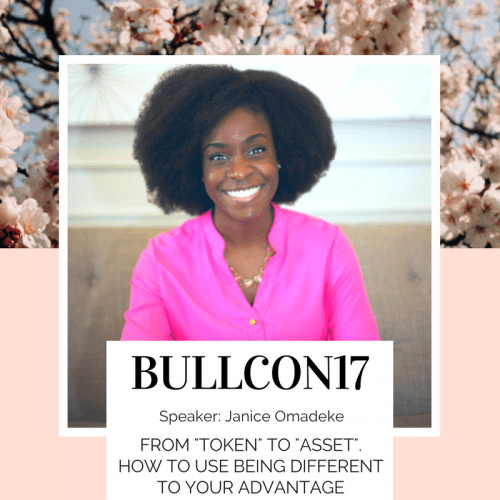This article is more than ten years old. It originally ran on a now-defunct website called The Grindstone. This post was created entirely by humans, as AI didn’t exist back then (but also: why would you want to read something no one could be bothered to write?) For more recent posts, try here.
Is your morning a swiftly executed productivity plan? Or a five-mile run? Or a serene hour of meditation and herbal tea that brings you focus and clarity for the rest of the day?
Blech. My mornings involve a lot of communing with my espresso machine and then, at 10:45, wondering who will still deliver me a breakfast sandwich.
Laura Vanderkam, in her ebook What the Most Successful People Do Before Breakfast, is telling us to get the hell out of bed a lot earlier. I’m ambivalent. Hence, this article, in which Laura and I hash it out.
If Vanderkam’s name looks familiar: I quoted her book 168 Hours: You Have More Time Than You Think (not to be confused with 147 Hours, in which James Franco saws his own arm off), in this article, in which I actually kept a time diary and discovered that I spent 3.25 hours per week hitting the snooze button. (Oh, glorious snooze button, privilege of the childless and self-employed!)
I also referenced 168 Hours in Bullish Life: Achieve Goals and Glory by Recreating Like a Total F*cking Badass, and Vanderkam’s article The Princess Problem in Bullish: How to Ask For More Money.
Bullish: Hi, Laura. So, we’re here today to talk about your new e-book, What the Most Successful People Do Before Breakfast. So … what do they do before breakfast?
LV: They tackle personal priorities that are tough to do at other times of the day — because life has a tendency to crowd them out. These are important but not urgent things like exercise, spiritual practices (meditation, prayer), nurturing relationships with family and friends, or long-term career planning. Later in the day, you’re more likely to get interrupted, and some research into the science of willpower finds that our supply of self-discipline gets depleted later in the day. Successful people know that if something has to happen, it has to happen first.
Bullish: In a survey of executives referenced in your book, the latest any of them got up was 6 a.m. You also cite research that “tasks that require self- discipline are simply easier to do while the day is young.” I have found this to be true myself, and have often recommended multi-tracked to-do lists (one list of things you can do when your brain still works, and another list of tedious or mindless tasks you can get out of the way when your brain is pretty much spent).
But isn’t this true regardless of when you start your day? If I got up at 11am and went to bed at 3am, would I really be sacrificing productivity?
LV: It wasn’t a very scientific survey, but yes, people who are running huge organizations spend their whole days dealing with other people’s priorities. In the morning, they can tackle their own. If it works for you to go to bed at 3 a.m. and get up at 11 a.m., more power to you. But most organizations still keep core business hours, so people who go to bed at 3 a.m. soon find themselves falling asleep at 8 a.m. meetings. And people who try to work out at 5 p.m. soon find that urgent client requests or networking opportunities come up with startling regularity. That’s why they use their mornings.
Bullish: Oh, regular jobs! They are not for everyone. (See Bullish: Do You Belong In an Institution?)
I also wonder if there’s just a genetic component to morning-person-hood. You write, “one analysis of Twitter feeds from around the world found that people are more likely to use words like ‘awesome’ and ‘super’ between 6:00 and 9:00 a.m. than at other times of the day.”
I’m not sure that correlation equals causation, here — isn’t it possible that people who say “super” are exactly the kind of people who are, um, predisposed to Tweet about the sunrise at 6am? Maybe some people are just morning people, and mimicking them isn’t going to help?
LV: Sure, some people are larks, and some are confirmed night owls. These people will not be able to change their fundamental nature. But most of us are in the middle. We’ll lean one way or the other depending on what works with our lives. Given that the workplace does still reward people who are functional at 8 or 9 a.m., there are solid reasons to push yourself to the lark side if you’re naturally neutral in temperament, and have ambitions to climb the corporate ladder.
Bullish: You write about your own transition from night owl to morning person. If I may quote you here:
Ironic as it sounds, I wrote most of this missive—on what the most successful people do before breakfast—in a coffee shop at night.
Doing that at this stage of my life, however, with small children and work that more than fills normal business hours, required various logistical feats. I had to arrange additional babysitting coverage and answer to the smaller members of my family, who, quite reasonably, expected the hours after school and work to be family time. Consequently, these are not hours that I often take for focused work, let alone for exercise or other such pursuits.
This is the thing that gets me. Children aren’t a joy to have around while you write your next book? WTH?
LV: From a sheer logistical perspective, it’s hard to type while nursing a baby. Especially if a 5-year-old is tugging on your other arm. My kids are a joy. But they’re not a joy that I can experience simultaneously while experiencing the joy of writing. Fortunately, in 168 hours, there’s plenty of time to work 40-50 hours, and still spend a lot of time with your kids too.
Bullish: Have you fully converted from night owl to morning person? 50%?
LV: It’s probably around 50%. My 8-month-old is waking up somewhere between 5:30 and 6:30 a.m. these days. I can’t say I enjoy the early wake-up, but I recognize that it does give me time to sit on the back porch, drink my coffee and read my newspaper while she plays with toys on a blanket nearby. I also realized, the other day, that I used to stay up until 1 a.m. writing. That hasn’t happened in a while. But I seem to be just as productive, so I guess I’ve made the switch.
Bullish: Well, there you go. You know, when I first read your e-book, I thought, sure, that makes sense. I agreed. I kind of thought, if I don’t have much to add, I don’t know if I’ll write about this. And then I slept on it, and the next day I thought, Why am I so mad just thinking about retooling my mornings?
And then I realized that I was angry at the idea that I would have to get up increasingly earlier throughout my adult life in order to get a single damn hour alone. For instance, right now? I’m alone! Writing you an email. Solitude is a huge part of my lifestyle, as is deciding when I get up.
I spend approximately 7 hours a day in total solitude. If yesterday’s mascara is giving me raccoon eyes, I don’t even know! I have both a standing desk and a normal desk both located within fourteen feet of a bathroom, a refrigerator, an espresso machine, and a hammock. I have repeatedly turned down full-time job offers for pretty much this reason. (See Bullish Life: A Day in the Life of Bullish — Caffeine, Pinstripe, and a Lack of Time-Wasting Bullshit.)
So, you’re basically sounding a warning shot that I should never have children. That’s not exactly a question, but feel free…
LV: If you want to have 7 hours a day of total solitude after having children, you can. You just have to have 7 hours a day of childcare that involves the children being in a different location than you. Then you can keep working exactly the way you are. It’s people who work in more traditional settings, with colleagues and such, who feel the loss of solitude so acutely. You deal with people at work, and then you deal with people at home. Getting up early gives you time to yourself, and for many people, that’s worth setting an alarm.
Bullish: People, people, too many people! (See Bullish: The Nerdy, Reflective Person’s Guide to Networking.)
On a similar note, I kind of feel like, if you have a job where you have to get up at 5am to have any time to think, you have a bad job, or else you are in charge of the whole world and should be paid accordingly. To me, having to get up at 5am is a reasonable sacrifice for someone making more than, say, $200K (in New York dollars), or for a young person hustling for a limited period of time (see Bullish: Maybe Work-Life Balance Means You Should Work MORE).
But if you are a regular person with a regular job who has to be up at the ass-crack of dawn to make your life work, yikes! Maybe your job is taking too much of you. It’s a terrible economy and I don’t have a solution to that, but I hate to give people Who Moved My Cheese? style advice (that is, advice that tells people to “adapt” to being exploited and screwed over, rather than to make ballsy changes in life.)
It seems like using the most undesirable hours for things that really matter and allocating the rest to other things is sort of like using your entire living room and bedroom as the home office, and sleeping and eating dinner in the garage.
Or are sunrises just really that nice and I’m making a big deal out of nothing?
LV: Like you, I work for myself. So if I want to think at 2 p.m., I think at 2 p.m. But many people are in jobs that puts too much value on constant connectivity, or that take too much of them. If you are in such a situation, you’re going to have spend time figuring out a way to make those ballsy changes that will bring you a better life. Clearly, no one’s going to hand you that time in the middle of the day. Ideally, the locus of control you develop by being in charge of your life and your thoughts from 6-8 a.m. will then expand outward into the rest of your existence as you come up with solutions. Or at least you can use that time to look for another job.
I hope that didn’t sound like Who Moved My Cheese advice.
Bullish: No, it didn’t – one way to avoid being a mouse in a maze looking for cheese (seriously, that book is juvenile) is to leave the maze.
Okay, now let me actually ask you a question that ties back into 168 Hours, but also applies here. I liked 168 Hours because you talked in some detail about cutting out time-wasting crap (dust under the bed isn’t that big a deal, and no one needs to brush the nap on an electric blanket) and cutting out chunks of time for what’s really important. However, the Amazon reviewers who had anything bad to say about your book were mostly of the “This is for elitists!” variety. (This type of commenter often also remarks — cuttingly, he thinks! — “I’m glad I got this for free at the library.”) You did, of course, recommend outsourcing as much as possible, hiring a maid service, etc.
My personal take on this is that advice on anything is made more effective by adding money to the mix. It’s just dumb to complain about that. Buy a book about photography, it’ll suggest expensive lenses. Buy a book about learning French, it might suggest going to France. I have no problem with this. Also, my audience is generally young and open to the suggestion that it would be good to set one’s sights on making enough money to make outsourcing (for instance) possible.
But can you weigh in on this? Do you (we?) write advice for elites/elitists? The dean of Wake Forest University, for instance, won’t stay in a hotel that doesn’t have a treadmill. Unsurprisingly, most of your examples in What the Most Successful People Do Before Breakfast are about, well … the most successful people.
LV: My ebook is cheap, but with my hardcover books, I plead guilty to writing for people who will pay $25.95 for a book. Library patrons, in general, aren’t impoverished either. These are people who should understand that time is absolutely limited. The mightiest among us has no more than 168 hours a week. Money, on the other hand, is a more flexible concept. You can make more. And if you are making good money, as many book buyers and library patrons are, I see no reason not to use it to optimize the scarcer resource.
But can I make a point about outsourcing chores? I knew, as I was writing the tip to hire a cleaning service, that any critical reviewer would bring it up. Not everyone can afford a cleaning service! True. But we’ve somehow found space in our budgets in the last 20 years for cell phones, internet service, and other such luxuries that no one deemed necessary a few decades ago. We’ve also gotten our heads around the idea of outsourcing the construction of our homes even though, technically, you could do that yourself too. The reason people view cleaning services as the province of the privileged is that they believe cleaning is women’s work, and women’s time has no value. As you can imagine, I don’t believe that. Over time, I hope the conversation will change so that people can ignore, minimize or outsource the things that aren’t top priorities to them without it conjuring up self-righteous judgments on who is paying for what.
Bullish: Fabulous. I may start a cleaning service and use “The reason people view cleaning services as the province of the privileged is that they believe cleaning is women’s work, and women’s time has no value. As you can imagine, I don’t believe that” on my promotional postcards.
And now a meta-question. Penguin publishes ebooks? Since when? How does this work? Help us out here, for the many writerly-types who read this. Did you send a book proposal to your agent, just as you would for a regular book? (Note: What the Most Successful People Do Before Breakfast clocks in at a little under 40 pages.) Are you working on another regular book, or moving more in the short-form direction?
LV: Portfolio (Penguin’s business imprint) published my last two books, so when I heard they were testing the water with ebooks, I raised my hand to try one. I’d mentioned to my editor before that a blog post I’d called What the Most Successful People Do Before Breakfast had become my most-clicked-title ever. We thought it might make a good title in general. We weren’t so sure there was enough there for a 75,000-word book on that topic alone, though. So a 10,000-word ebook seemed like a good middle ground. I love writing long-form, and I hope I’ll get to do other full-length books, but for my last hardcover book, fully half of sales have been digital. In the ebook era, there’s no reason to bundle chapters together, just as there’s no reason for someone with a musical vision to bundle songs into an album.
Bullish: One more – how people can read more of your work?
LV: I’m blogging close to daily at LauraVanderkam.com, often trying out new material that eventually makes it into my books. I love to gauge people’s reactions and see what is going to work and what, most definitely, will not.
Bullish: Thanks, Laura.
Hmmn. While I can’t deny that getting up earlier would make most people more productive, I can’t help but recall how I got in my current situation in the first place: By working hard and doing ballsy things, of course, but also by repeatedly turning down full-time job offers because I don’t want anyone telling me when to wake up or where to sit. And also because commuting during productive hours makes no sense. And because office bathrooms are awkward.
That is, getting up whenever I want has always been a goal of working hard.
Also, work sessions that begin after 6pm can be accompanied by scotch. But that’s probably just me.
See you next week for a piece on revolutionizing your to-do list!











